ADATA XPG ATOM 50 1TB Performance Testing
We test using both the default smaller test size as well as larger test sets on our benchmarks. This allows us to see the difference between lighter and heavier workloads.
CrystalDiskMark x64
CrystalDiskMark is used as a basic starting point for benchmarks as it is something commonly run by end-users as a sanity check.
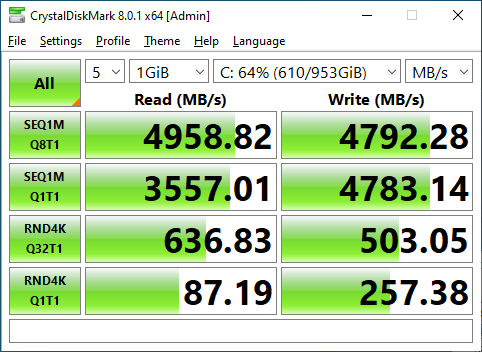
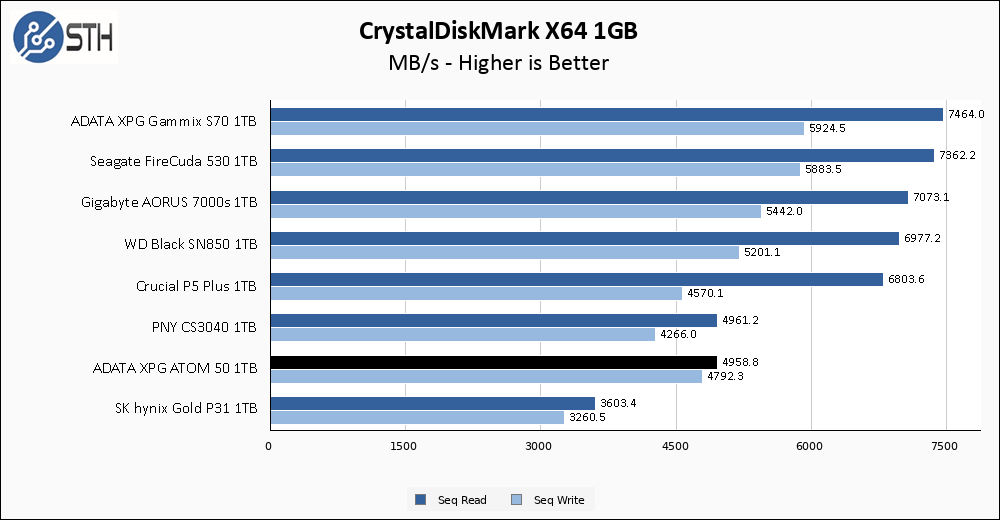
ADATA promised 5000 MB/s read and 4500 MB/s write, and they got darn close to nailing it. The sequential read speed is within the margin of error for this test, and the write speed ever so slightly overperforms. Most of the rest of the drives on our performance graph are targeting higher-end performance, so the ATOM 50 comes in near the bottom of the graph, but ADATA delivers exactly what they promised here.
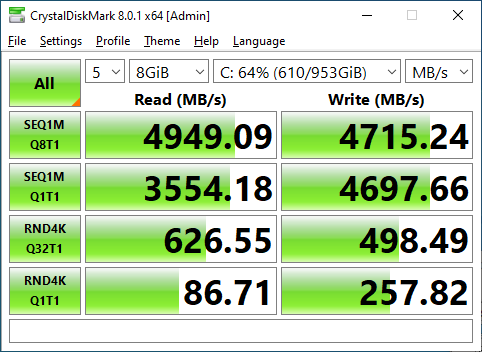
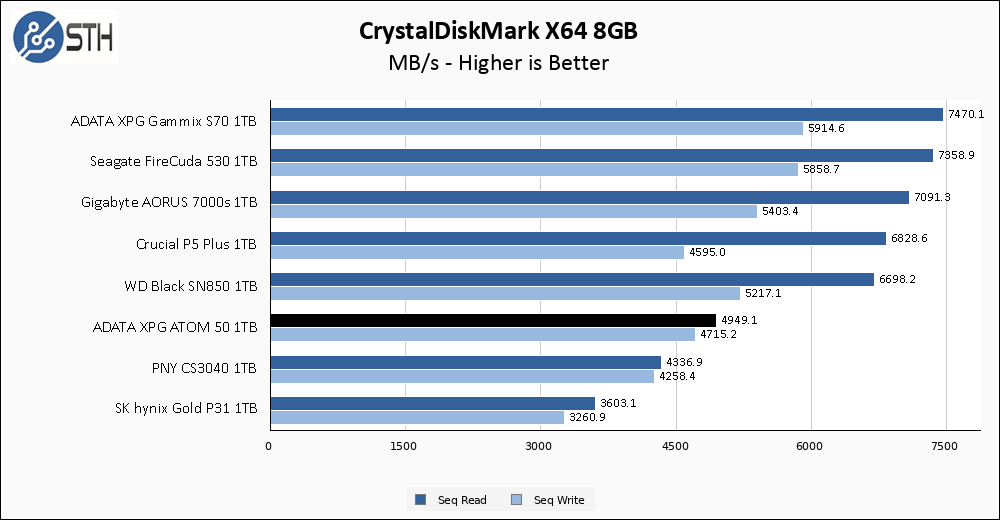
Performance drop on the larger CrystalDiskMark test is negligible. As a result, the ATOM 50 manages to edge out the PNY CS3040, which dipped a bit on the larger test.
ATTO Disk Benchmark
The ATTO Disk Benchmark has been a staple of drive sequential performance testing for years. ATTO was tested at both 256MB and 8GB file sizes.
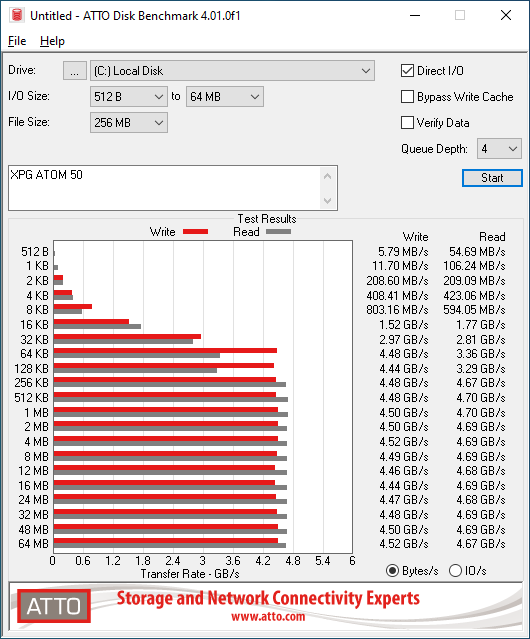
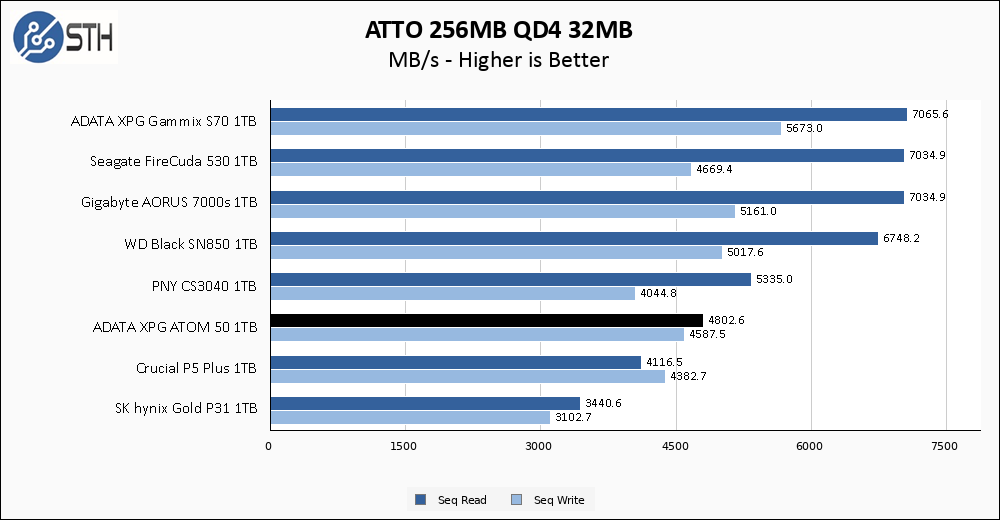
ATTO performance for this drive is consistent and, like most drives, just one half step behind what is achieved in CrystalDiskMark. Of note here is that the ATOM 50 manages to outpace the Crucial P5 Plus.
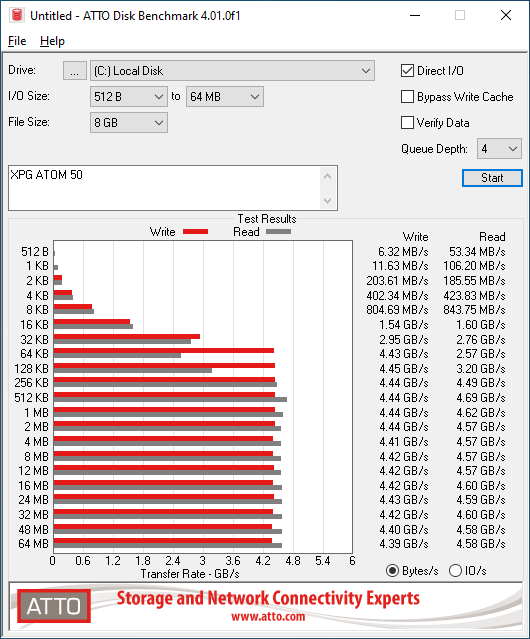
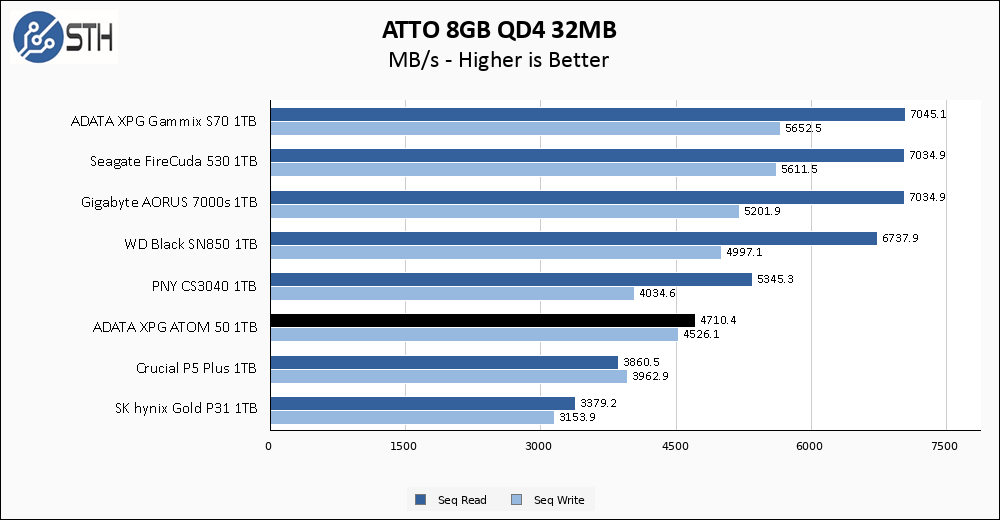
The larger ATTO test turns in results that are virtually indistinguishable from the smaller test, which is good. Once again the ATOM 50 manages to outperform the Crucial P5 Plus.
Anvil’s Storage Utilities
Anvil’s Storage Utilities is a comprehensive benchmark that gives us a very in-depth look at the performance of drives tested. This benchmark was run with both a 1GB and 8GB test size.
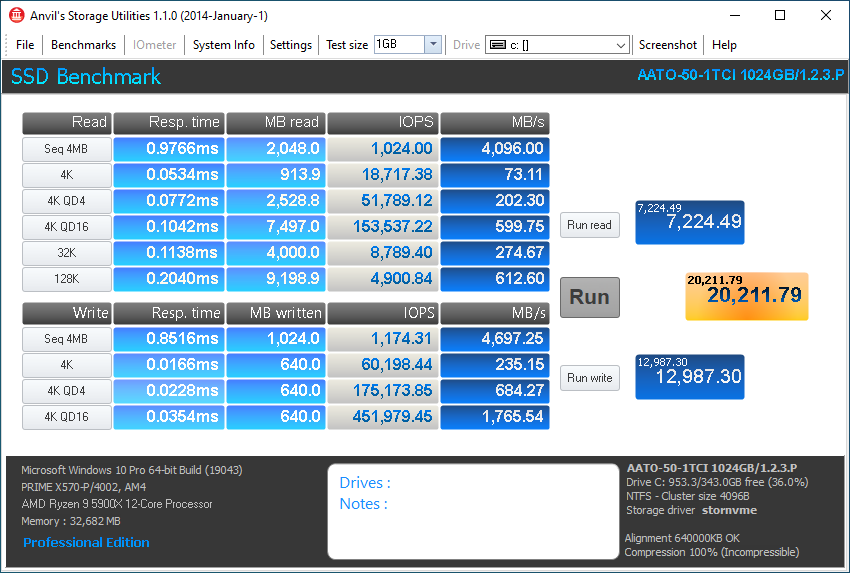
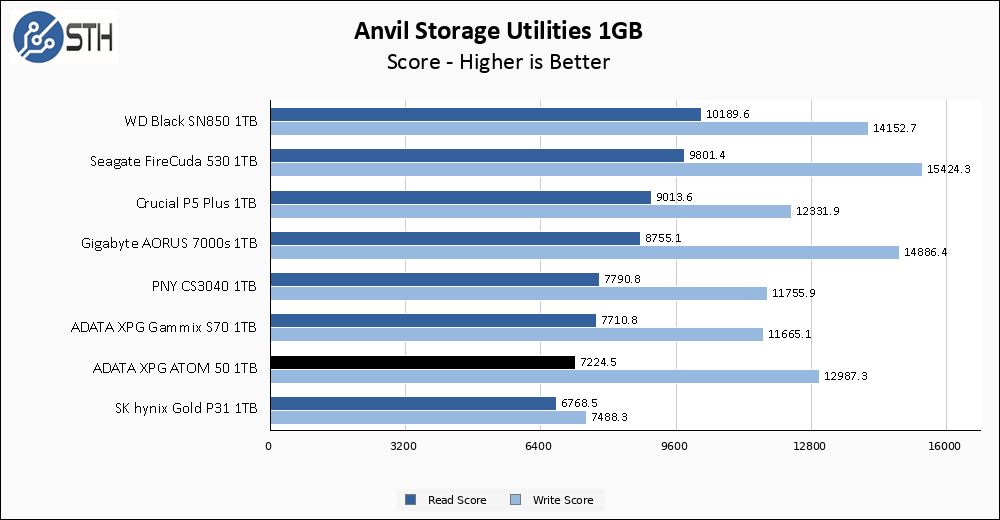
Anvil performance was not a strong point for the ATOM 50’s big brother the S70, and that tradition somewhat carries on here. With that said, the write score on the ATOM 50 actually outperforms the S70, and in general, I am still pleased with the ATOM 50’s results.
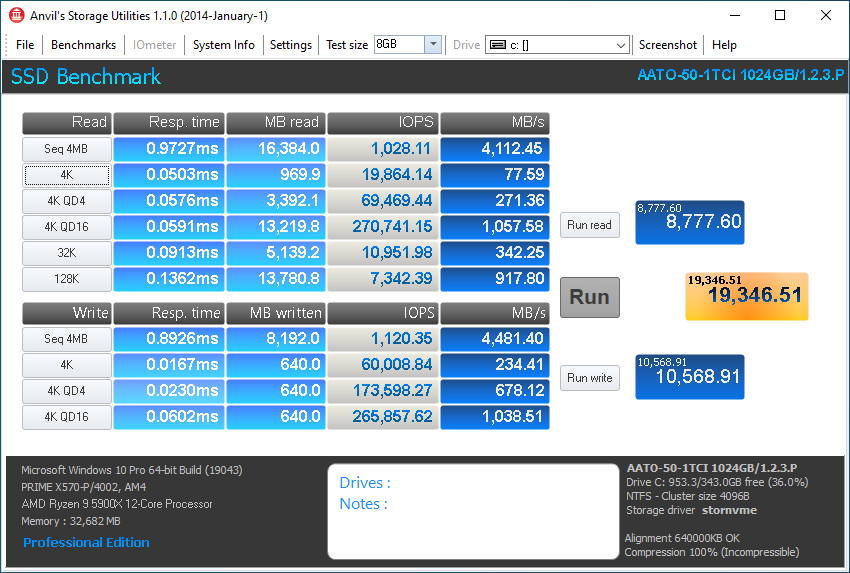
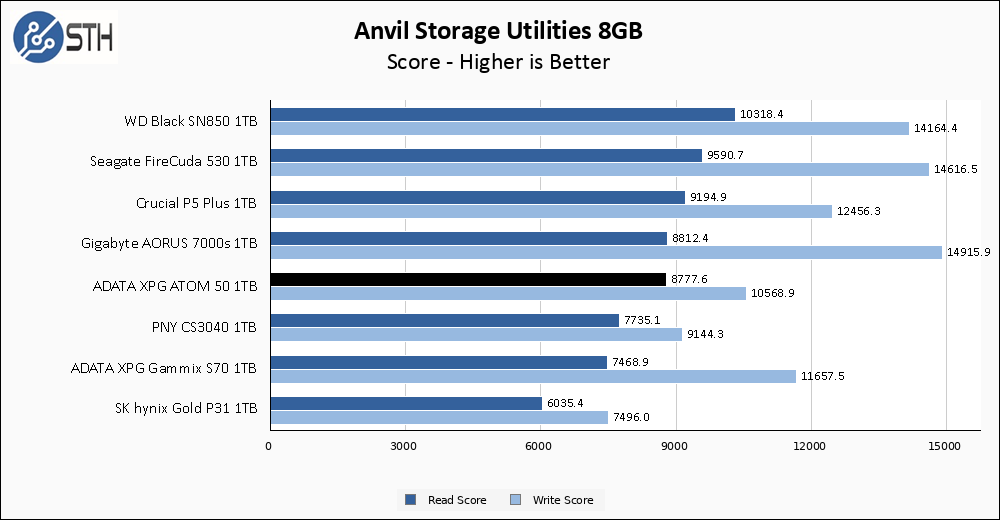
On the larger Anvil test, read performance improves by a decent margin while write performance loses a step. As a result, the ATOM 50 now beats the S70 in read score, but suddenly loses in write score.
AS SSD Benchmark
AS SSD Benchmark is another good benchmark for testing SSDs. We run all three tests for our series. Like other utilities, it was run with both the default 1GB as well as a larger 10GB test set.
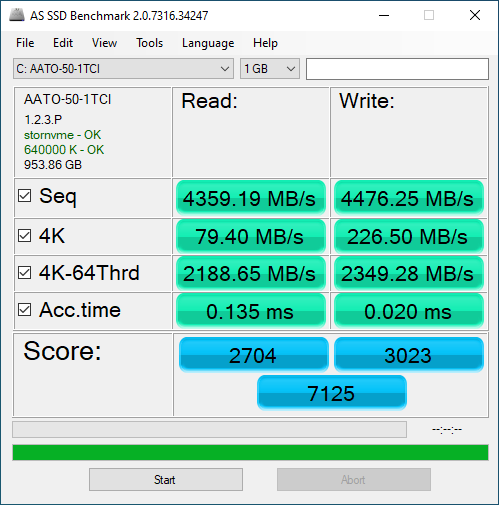
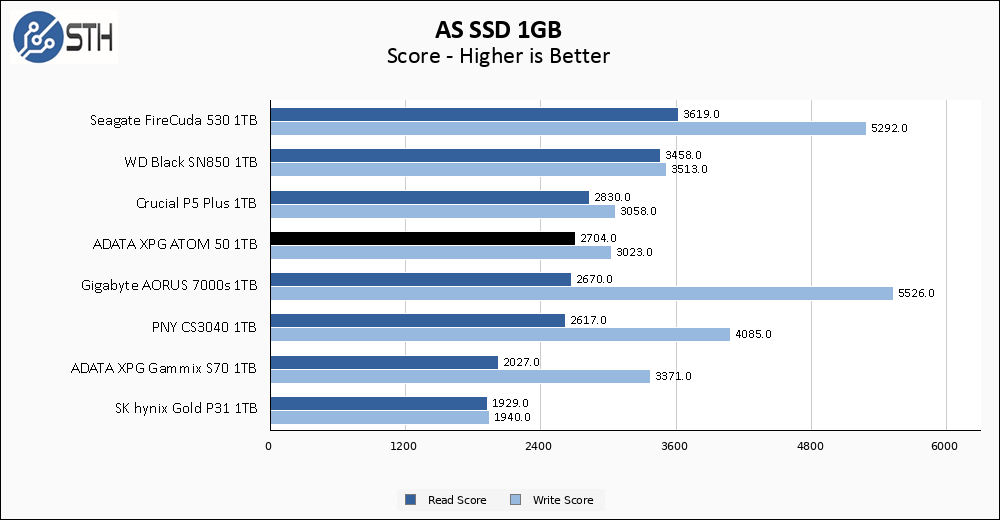
AS SSD turns in the best relative results for the ADATA XPG ATOM 50 yet, landing solidly in the middle of the PCIe 4.0 pack. Read score nestles in between the Crucial P5 Plus and the Gigabyte AORUS 7000s which is good company to keep for a value-oriented drive.
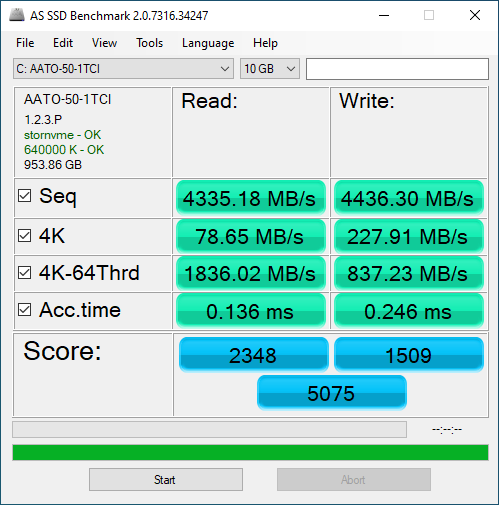
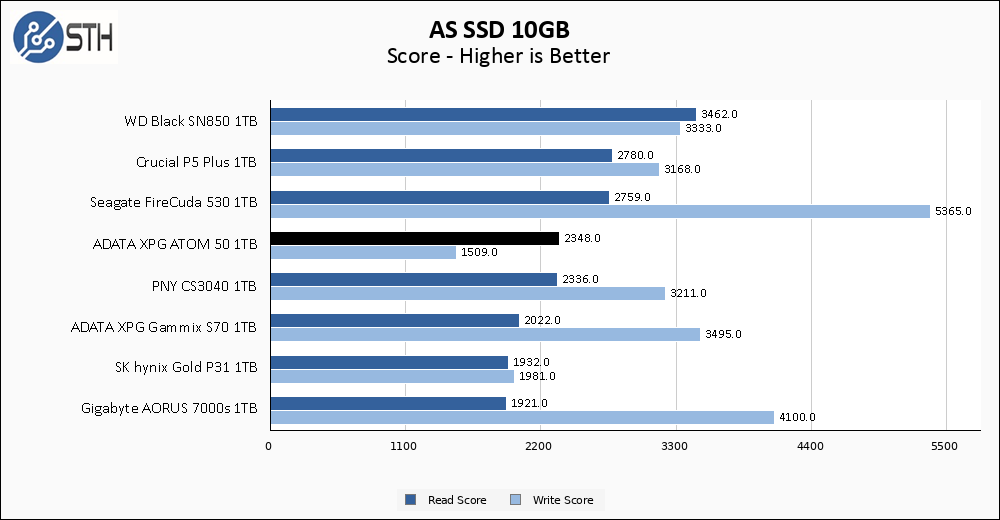
Read performance holds fairly strong in the larger AS SSD test, but write performance takes a very significant hit. The ATOM 50 does not perform well in the high thread 4K random write subtest, which craters the overall write score.
SPECworkstation, thermals, and our conclusion are up next.

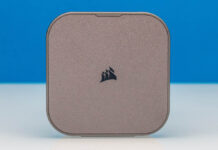
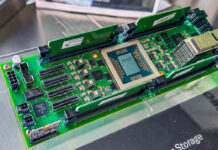
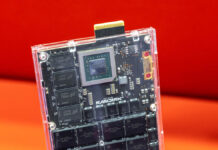
Would be interesting how this SSD with its low post-cache-write speeds would impact the system performance as swap/page file drive. There are still lots of older systems in use that are hardware limited to 16 or even 8 GB RAM.